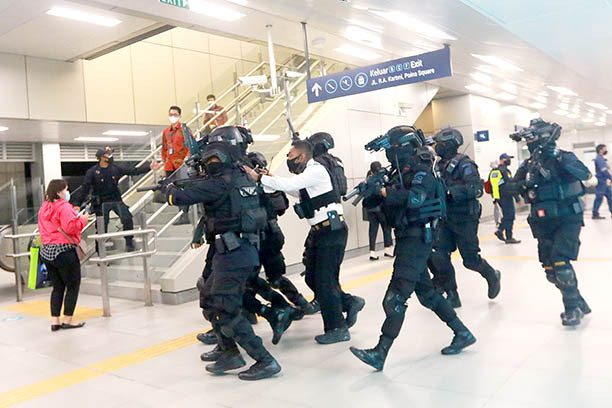Palembang urged to improve bus system
Despite being named one of the seven most livable cities in the 2014 Most Livable City Index survey, Palembang, South Sumatra still faces challenges in a number of areas, especially with respect to public transportation
Change Size

D
espite being named one of the seven most livable cities in the 2014 Most Livable City Index survey, Palembang, South Sumatra still faces challenges in a number of areas, especially with respect to public transportation.
The survey, conducted by the Indonesian Association of Planners (IAP), named Balikpapan, East Kalimantan; Surakarta, Central Java; Malang, East Java; Yogyakarta; Makassar, South Sulawesi;
and Bandung, West Java as the six other most livable cities in the country.
The existing Trans Musi bus system, for example, is still plagued by extended wait periods and a limited number of routes. Run by city-owned company PT Sarana Pembangunan Palembang Jaya, the bus system also struggles to fund operational costs, affecting the number of buses in operation.
Meanwhile, the city's privately owned bus fleets are a source of traffic congestion due to frequent stops and their mostly poor condition.
Abdullah Idi, a sociologist from Palembang's Raden Fatah Islamic State University, said many residents still relied on private vehicles because they were not yet comfortable with the public bus option.
'In addition, passengers are prone to pick-pocketing and residents have been complaining about the long waiting time for the Trans-Musi bus,' he said.
The Palembang city administration had initially planned to phase out the poor buses and replace them with Trans Musi buses. However, to date the plan remains unrealized.
Abdullah said efficient public transportation would reduce private car use, and help ease congestion and pollution.
Palembang, he said, is generally a comfortable place to live thanks to the low rate of public disturbances and the low risk of natural disasters. Abdullah said the society in Palembang was also tolerant, embraced ethnic diversity such that the city rarely saw inter-ethnic conflict. Palembang is a home to several ethnic groups, including communities of Chinese, Arabs, Indians and Malays.
In addition to public transportation, the city also lacks a sufficient amount of open green space. According to the Palembang Development Planning Board (Bappeda), open green space in Palembang accounted for just 3 percent of the city's 40,000 hectares, a far cry from the ideal figure of 30 percent.
South Sumatra chapter of Indonesian Forum for the Environment (Walhi) director Hadi Jatmiko said that the open green space in Palembang was only located in the city center and not evenly distributed among subdistricts and districts.
'The function of many open green spaces has changed as they have been converted into shopping malls and residential areas. The conversion is not substituted [or offset by developing green space] in other areas,' Hadi said.









